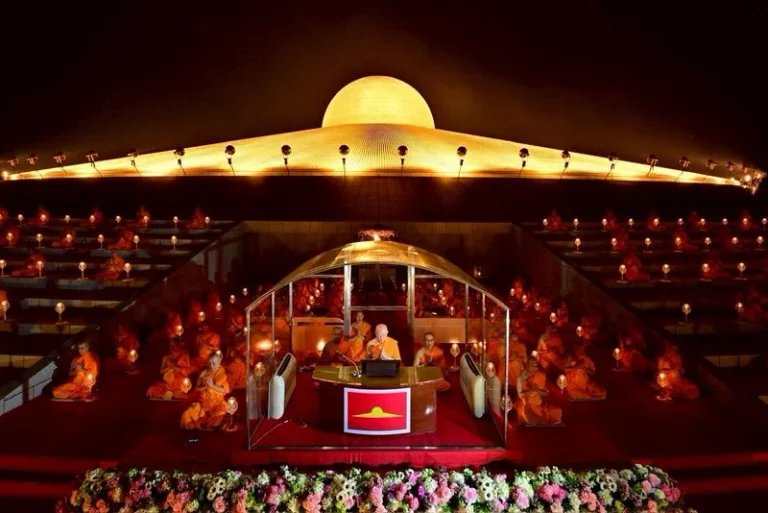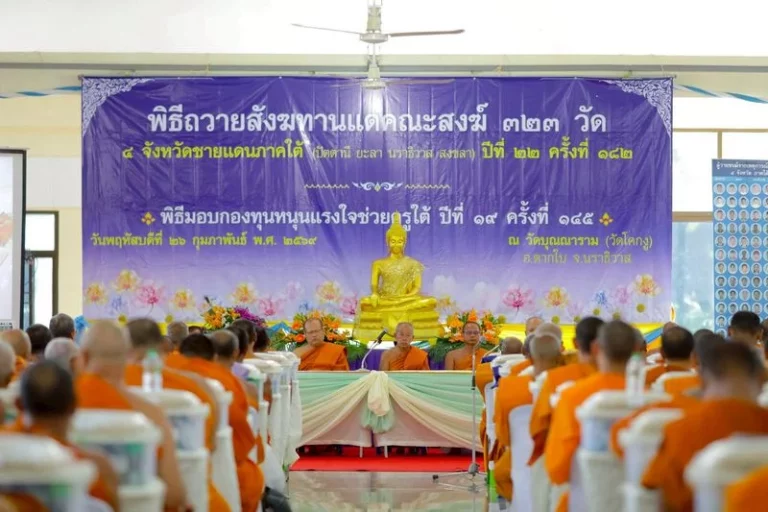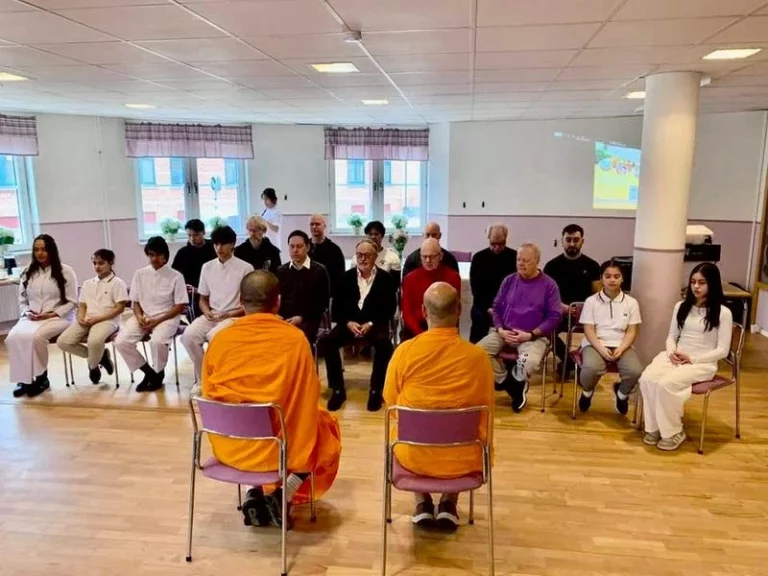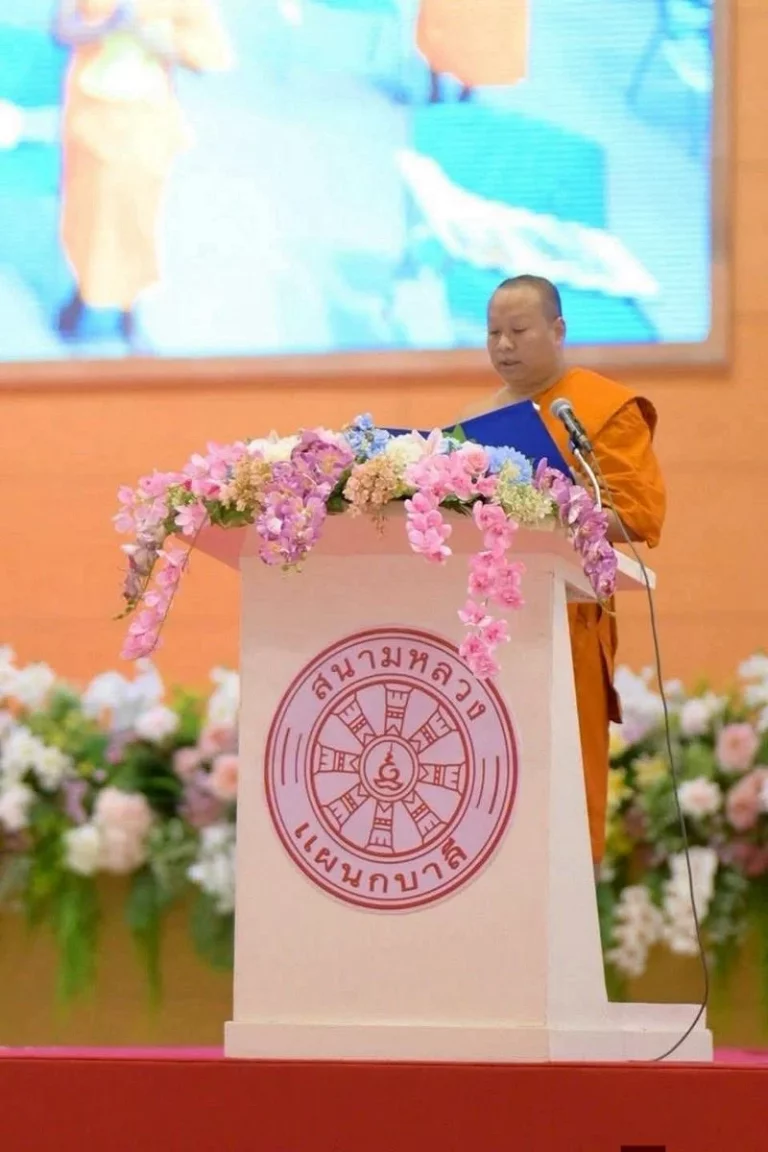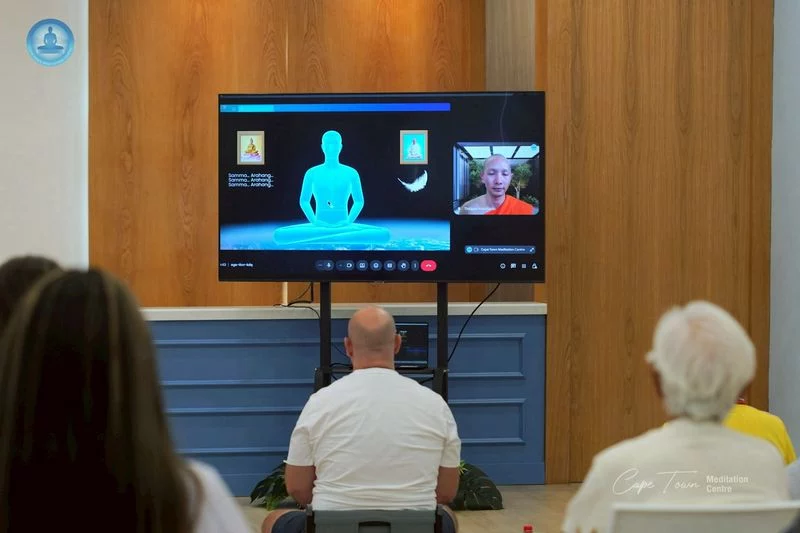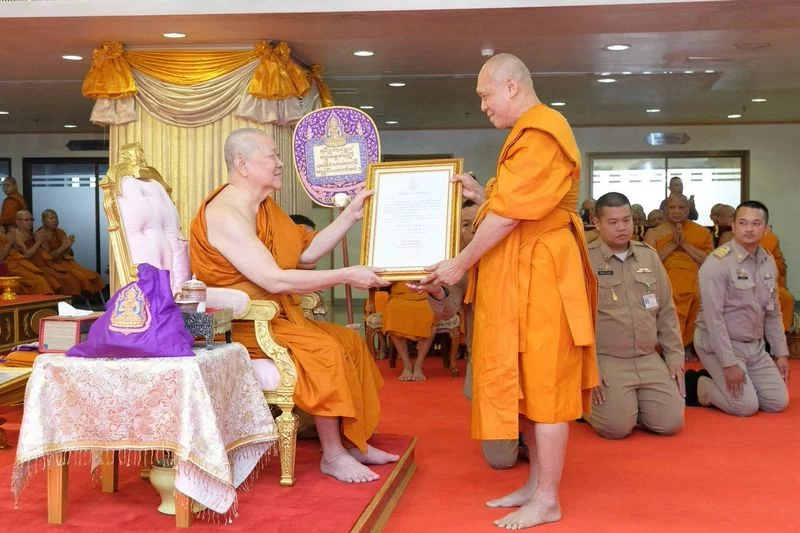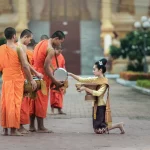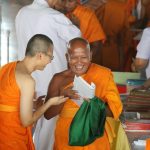More than 2,500 years ago, Lord Gotama Buddha renounced his lavish princely life to live as an ascetic in search of the ultimate spiritual liberation. By persevering in meditation practice, he discovered the Middle Way – a path of moderation existing between the extremes of sensual indulgence and self mortification. This path of wisdom ultimately led to his Enlightenment. With the power attained from his Enlightenment, he was able to eradicate all his defilements, or mental impurities, and access the supra-insight vision, knowledge, and wisdom.
Lord Buddha discovered that all sentient beings are governed by the Law of Karma whereby deeds committed mentally, verbally, and physically determine the conditions for every single living being. Lord Buddha saw that when one commits good deeds, he or she receives puñña, a pure life energy, which we call merit; and conversely, when one commits bad deeds, he or she receives pāpa, or impure life energy in return. Puñña brings happiness, prosperity, and success to oneself in both the mundane or spiritual world, while the consequence of pāpa is misery, misfortune and suffering.
Therefore, Lord Buddha urged Buddhists to cultivate puñña by performing only meritorious deeds through one’s actions, speech, and thought while abstaining from all unwholesome deeds. Although merit can be performed anywhere, Buddhists prefer to visit temples to make merit with Buddhist monks since Lord Buddha taught that performing meritorious deeds with holy people such as monks provides greater puñña to oneself.
Three Primary Methods to Performing Merit at a Buddhist Temple
At Buddhist temples, there are numerous activities and ceremonies organized to promote morality, peace, and harmony among communities. There are three major ways to cultivate merit; they are (1) the practice of generosity, or dāna (2) the observance of precepts, or sīla and (3) the practice of meditation, or bhāvanā.
(1) The practice of generosity (dāna) is an act of kind giving such as offering donation, offering meals or alms to venerable monks, funding the temple’s construction and maintenance, and giving useful things to monks or others. It is not necessary that you only give to Buddhist monks in order to acquire merit, but giving to Buddhist monks or the Buddhist monastic community yields merit in manifold due to the purity of the recipient. The practice of generosity serves to diminish greed, or lobha, from one’s heart. Moreover, according to the Law of Karma, merit earned from practicing generosity will consequently bring wealth to oneself in future lifetimes.
(2) The observance of the precepts (sīla) is practiced to promote wholesomeness and purity in one’s life. The Five Precepts, which is observed by laypeople, is the basic code of conduct for a virtuous life. The Five Precepts are:
(i) Abstention from killing
(ii) Abstention from stealing
(iii) Abstention from sexual misconduct
(iv) Abstention from false speech
(v) Abstention from alcohol and narcotics
In addition, there are the Eight Precepts for Buddhist nuns and laypeople participating in a retreat; the Ten Precepts for Buddhist novice monks; and the 227 Precepts for fully ordained Buddhist monks.
Before a merit-making ceremony, monks will lead the laypeople in a vow to observe the precepts. The goal for this observance is to build up mental discipline in order to reduce dosa, or anger, within oneself. The puññā gained from observing these precepts leads to health and happiness for the individual in future lifetimes. And when many individuals feel at peace, the result is a peaceful and harmonious society as a whole. Merit gained from observing the precepts is greater than merit gained from giving as it requires more effort and mental strength.
(3) The practice of meditation (bhāvanā) is the most powerful and effective method to accumulate merit energy. The practice can help lessen moha, or delusion, and all other defilements. The benefit is clarity of thought and insight. There are many Buddhist meditation techniques in Thailand. The main focus of most methods is to promote mental calmness (samādhi) and insight (vipassanā). Popular techniques include breathing meditation, mantra meditation, visualization meditation, and mindfulness meditation. Daily practice can gradually bring peace and true happiness to one’s life as the mind becomes more organized and still. Many Thai Buddhist monks instruct meditation and organize meditation retreats at their respective temples.





